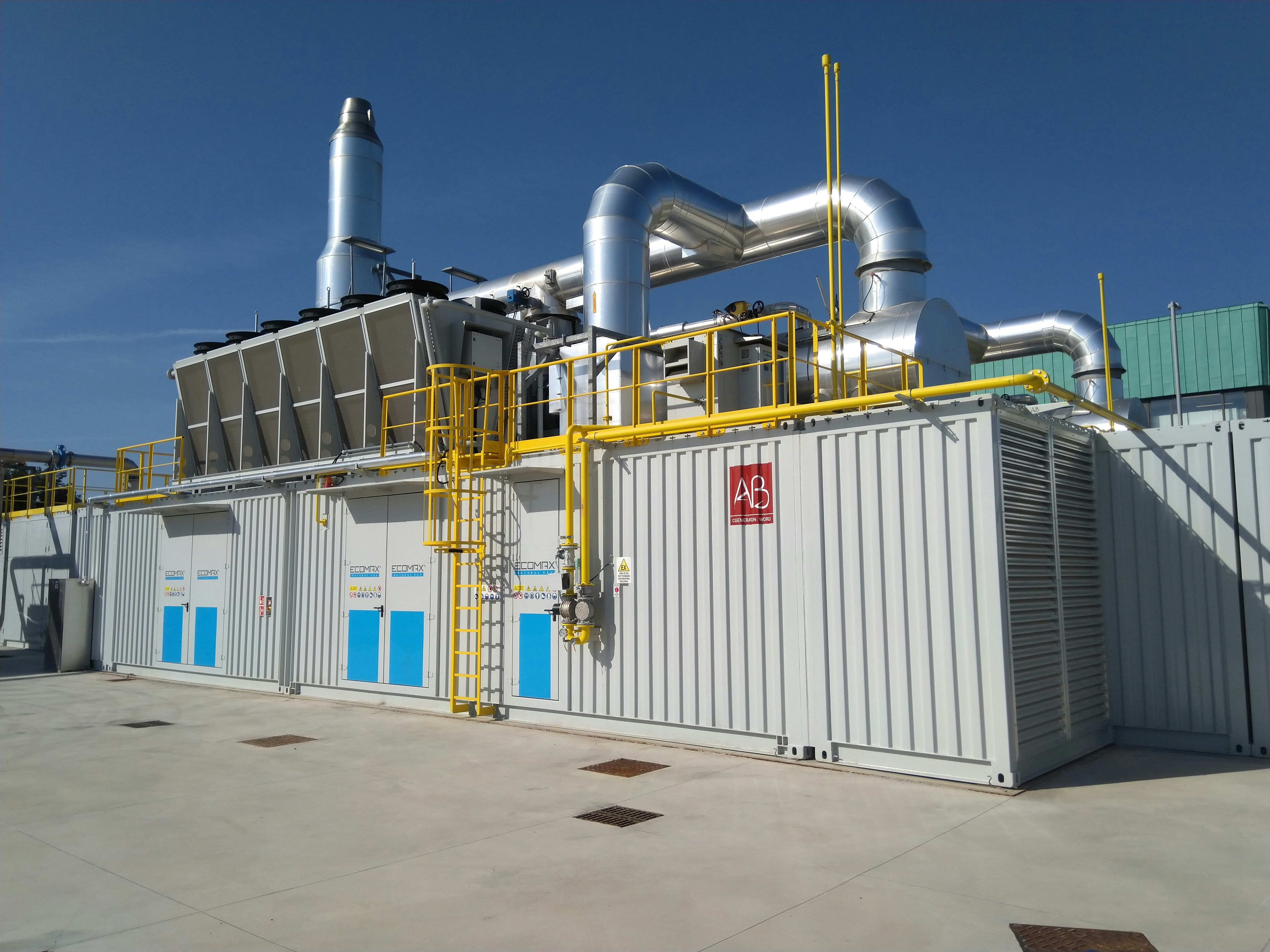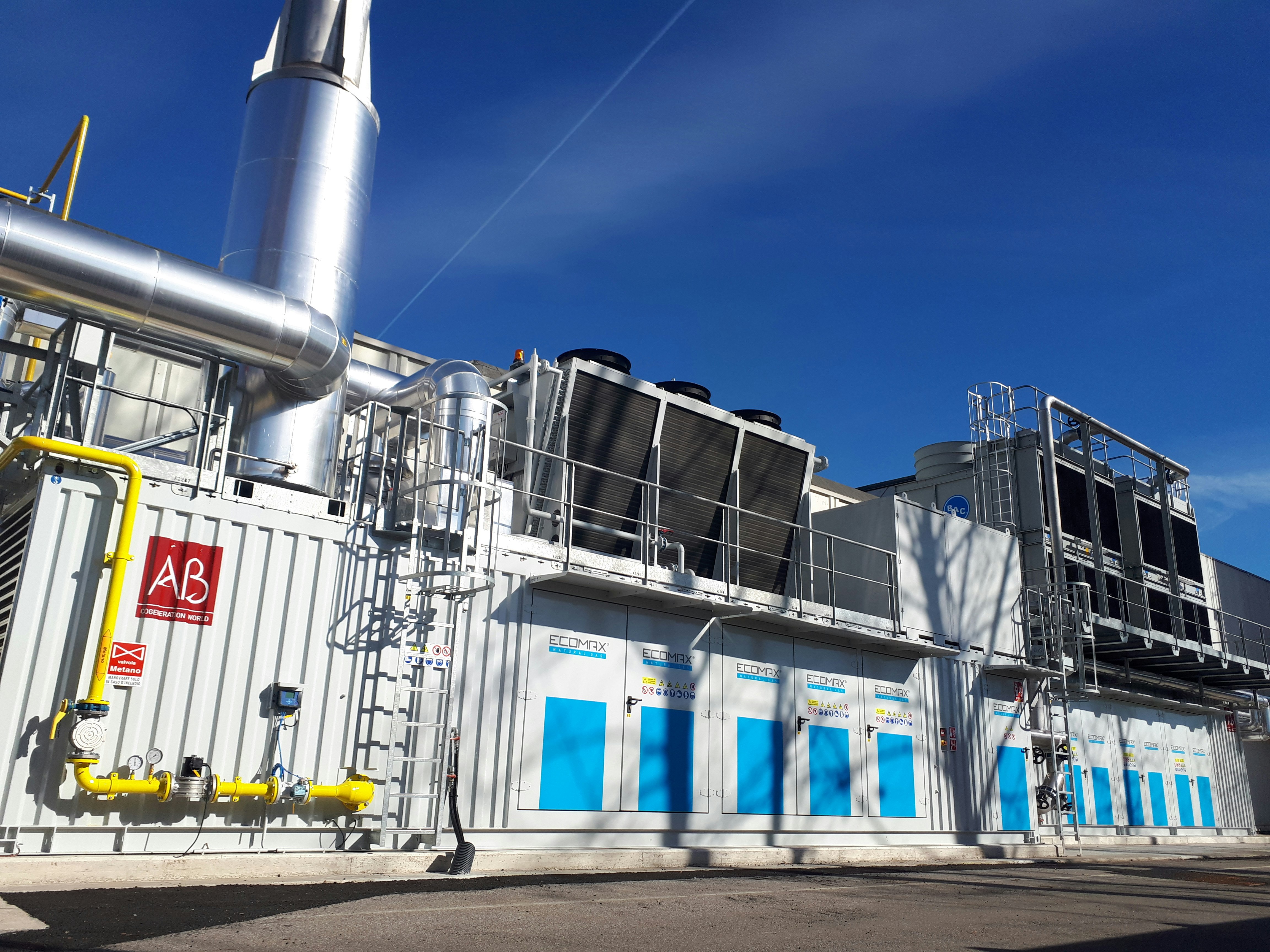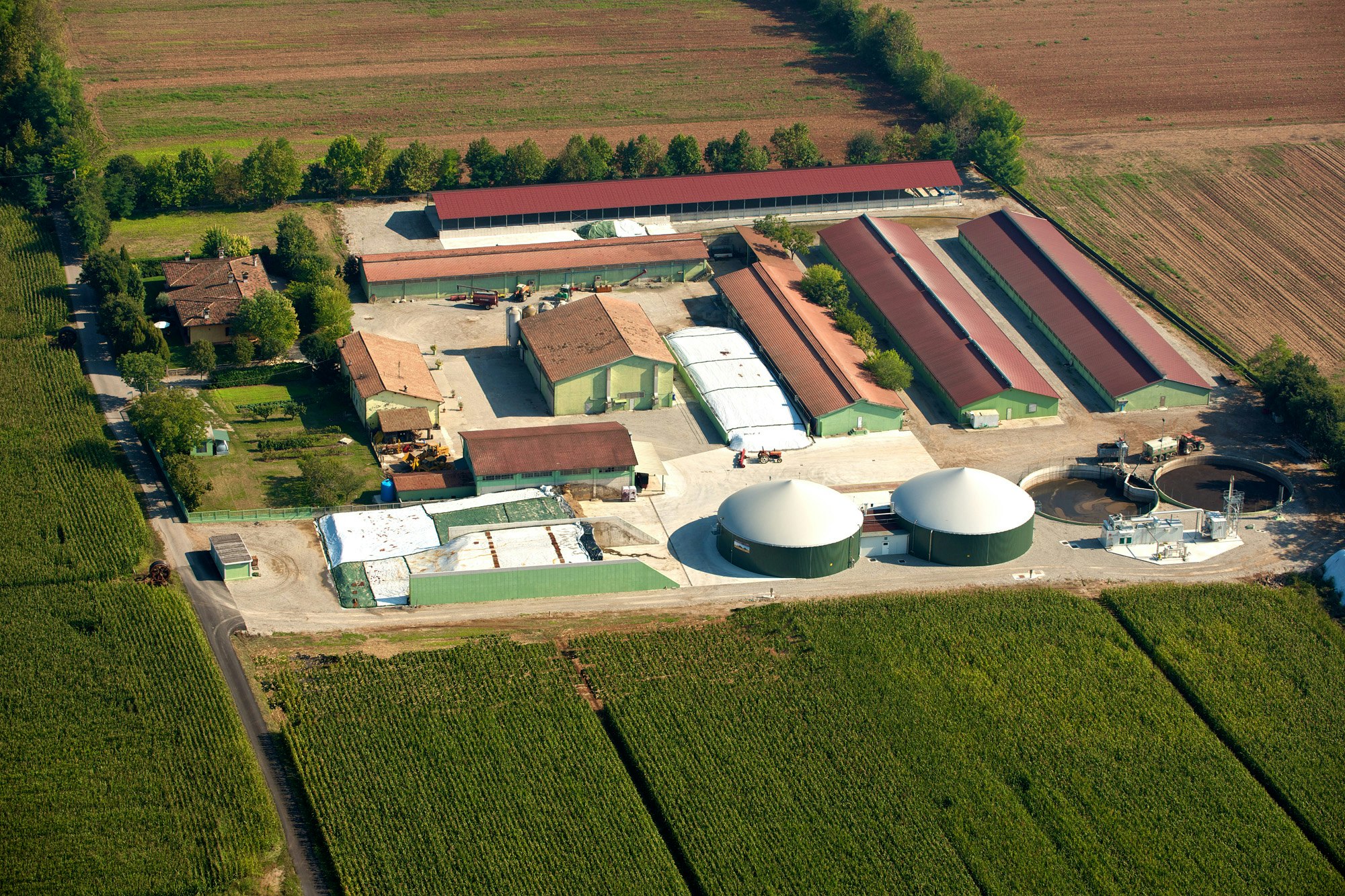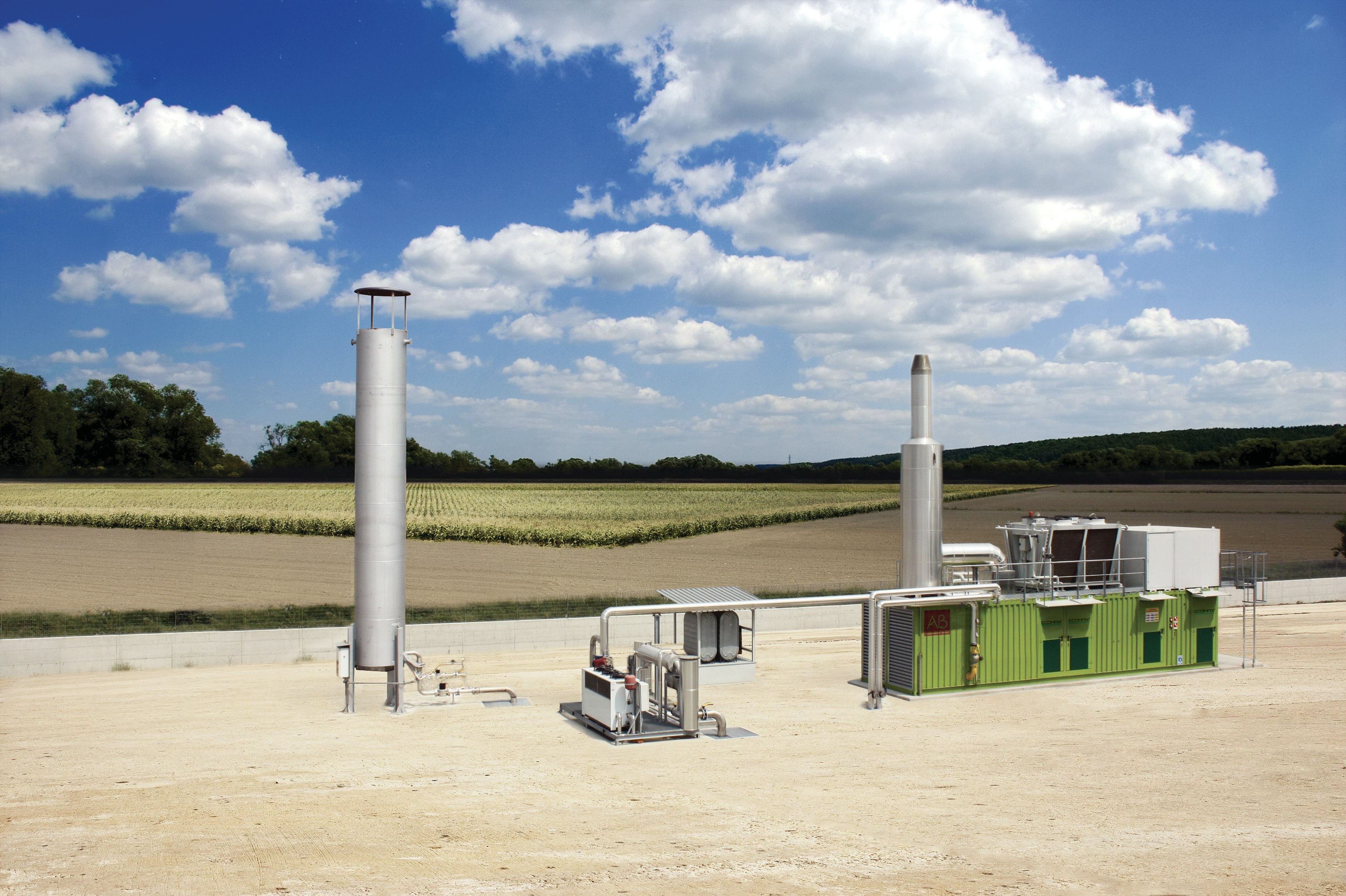
What is cogeneration?
Cogeneration, also known as CHP from the English acronym Combined Heat and Power, is the combined production process of electrical energy (and/or mechanical) and heat. This process takes place using a single source of primary energy, i.e. the same fuel, which can be natural gas, special gases, biogas, biomethane or hydrogen.
Natural gas is a fuel that derives from the anaerobic decomposition of organic material that can be found in nature in the fossil state or in its natural state in gas-only deposits;
Special gases are gases recovered during oil extraction and coal processing processes (associated oil gas or APG);
Biogas is a natural fuel that is obtained through anaerobic digestion of organic residues from plant or animal residues;
Biomethane is a gas derived from biogas, which has undergone a refining and purification process, called upgrading;
Hydrogen, and in particular green hydrogen, is a gas produced through the electrolysis of water powered by energy from renewable sources.
How does a cogenerator work?
A cogeneration project may vary its configuration depending on the gas used as fuel:
In the case of biogas, the plant consists of two parts: the anaerobic digestion part, where the actual production of biogas takes place (consisting of one or more digesters), and the transformation of biogas into energy part, i.e. the actual cogeneration plant.
In the case of natural gas, on the other hand, no technologies are necessary downstream of the cogeneration plant, as the gas is taken directly from the national network.
Regardless of the type of gas used, cogeneration plants generally consist of an Otto cycle engine, which produces mechanical energy and conveys it to an alternator to generate low voltage electricity, which is subsequently transformed into medium voltage electricity. The heat recovery takes place on two fronts: from the engine cooling water, through a plate heat exchanger which allows obtaining high temperature water, and from the flue gas fumes, which, being close to 400°, can be used to produce hot water, superheated water, steam or thermal oil through a boiler, or be used pure in the process.
The cogeneration unit is the heart of the project and the efficiency of the plant depends on its quality and reliability, in terms of both energy and overall economic performance.
Technologies and operating process of a cogenerator
Technologies and operating process of a biogas CHP plant
Cogeneration: advantages and benefits
Cogeneration represents an ideal choice for all those industrial, tertiary and service sectors in which there are energy-intensive realities, characterised by a high consumption of electrical energy and heat, or organisations that produce waste materials which can be exploited. The advantages are numerous:
The efficiency of use of the starting fuel increases up to 85%;
Fewer CO2 emissions and greenhouse gases are produced. Furthermore, if energy is produced through biogas or biomethane, the CO2 emitted is of agricultural origin, therefore fossil CO2 emissions are zero and the climate impact is zero;
Cogeneration systems are resilient and independent, that is, they can operate in isolation, disconnected from the network and are therefore ideal in areas frequently affected by blackouts or where there are poorly performing networks;
When integrated into a biogas plant, cogeneration exploits waste materials and enables the production of renewable energy;
Cogeneration ensures substantial savings on bills, linked to the rationalisation of the use of the starting fuel and to the self-production of the remaining energy;
In some Countries, incentives are added to the already considerable economic savings: in Italy, for example, there are both white certificates for energy efficiency and the incentives provided by the GSE for the production of renewable energy.
A guarantee of energy efficiency and sustainability
A cogeneration plant is a more efficient choice from an energy point of view than the separate production of electrical and thermal energy. In order to meet the electrical and thermal needs of its production processes, a company traditionally uses thermoelectric power plants and boilers, with consequences on both consumption and energy costs. In fact, in conventional power plants for electricity production, a part of the thermal energy is not actually converted but dispersed into the environment. With cogeneration, however, the dispersed heat is exploited and used for heating or for other purposes.
The efficiency of the process also translates into the reduction of bill costs and the reduction of CO2 emissions: the latter is one of the reasons why cogeneration is also a sustainability choice. When the fuels used are biogas, biomethane or green hydrogen, produced from waste matrices such as livestock effluents, slurry, the organic fraction of municipal solid waste (OFMSW), agro-industrial waste or other crop residues, cogeneration allows exploiting waste materials, which go from being waste to becoming a suitable resource for producing renewable energy.



